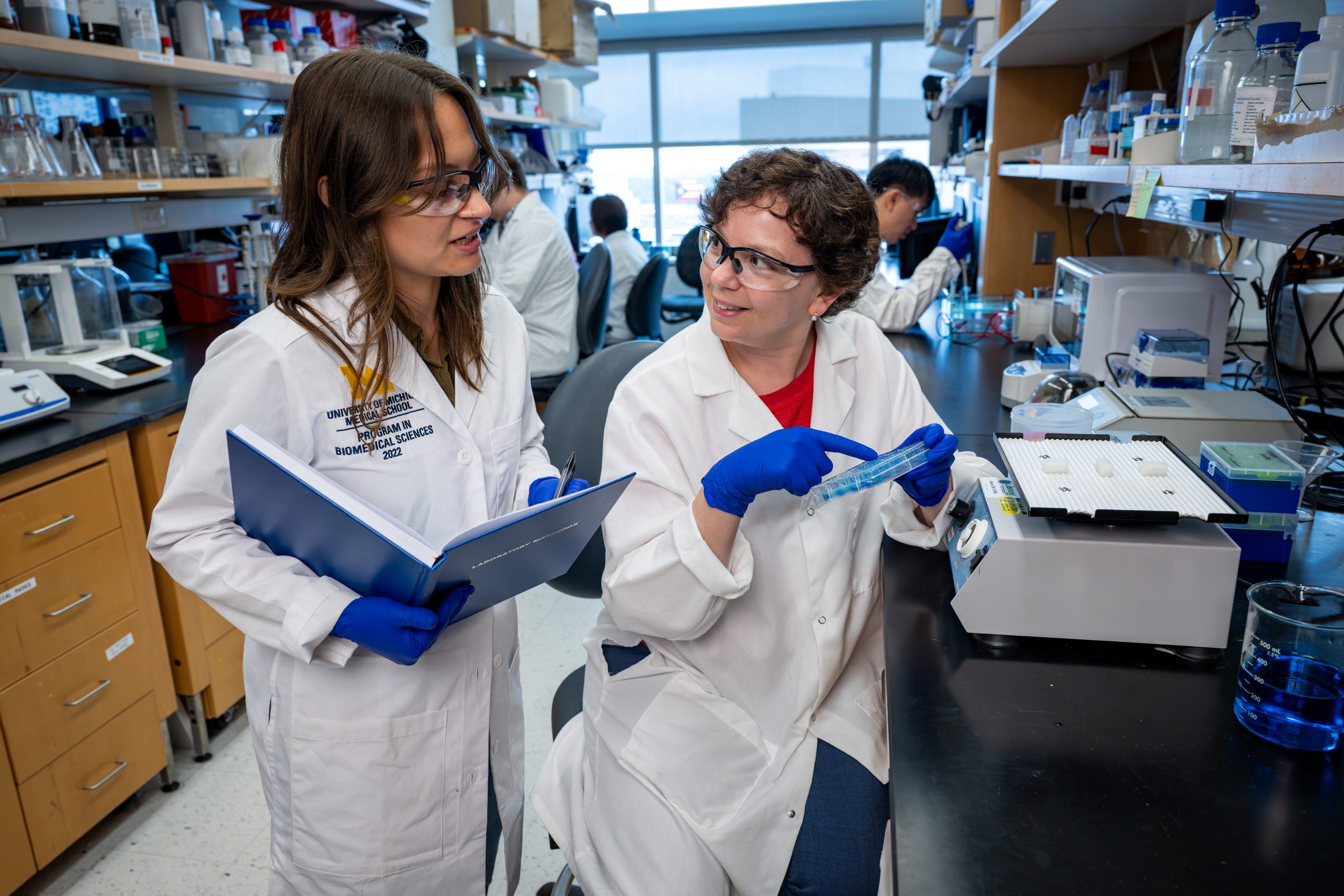Thanks for visiting our ResarchPalooza 2025 booth! It was a pleasure to have you stop by!
Read on for additional resources and information about physician-researchers, why we need more of them, and how the Taubman Institute supports that aim. When you are finished, take this three-question quiz for a chance to win Taubman Institute gear!
The Taubman Institute, established in 2007 by businessman and philanthropist A. Alfred Taubman, was created expressly to support Michigan Medicine’s physician-scientists.
Mr. Taubman’s vision was to advance the “high-risk, high-reward” ideas of the most brilliant medical minds, allowing them to pursue novel avenues not supported by traditional government and foundation funding.
Physician-researchers are medical doctors who have chosen the dual career of clinician, treating patients, and research scientist. Many earn a PhD in their field of study, in addition to their medical degree. The research of physician-researchers is informed by their patients’ plights, and they are in a unique position to translate observations from the clinic to the laboratory and back to clinic, accelerating discovery and hope.
It’s a rigorous but rewarding life with the potential for making huge strides in biomedical science and patient treatment. Physician-scientists have been responsible for some of the most impactful breakthroughs in human medicine, including smallpox vaccines, immunotherapy treatments for cancer, insulin as a treatment for diabetes, and the mRNA vaccines that made headlines during the Covid pandemic.
Today, about 14 percent of United States physicians are involved in scientific investigation. According to the American Association of Medical Colleges, 24 percent of academically affiliated doctors undertake research, and about 4 percent of all physicians also have earned a PhD.
At the Taubman Institute, we believe in the mission of physician-investigators and strive to support their work, with our Emerging Scholar grants designed to keep early-career MDs in the research arena, our senior Taubman Scholar grants for established scientists, and our Taubman Institute Innovation Projects grants.
In addition, our unique project management team accelerates institute-funded projects by helping the grantees with logistics such as study coordination, database analysis and progress monitoring. The Taubman Scholars also give a boost to the next generation of physician-researchers by mentoring learners in the Medical Scientist Training Program.
Taubman Scholars are thought leaders in important fields ranging from cancer to diabetes to dementia, from mental health to macular degeneration. They address the compelling health issues that make life difficult for patients and families alike, and are passionate about finding new therapies for the most troubling medical problems.
If you’re interested in further information, here are some recent papers about physician-researchers:
The physician-scientist: looking back, looking forward
Demographic Characteristics and Work Experiences of Physician Scientists in the U.S.
Mentorship of physician scientists: A critical imperative
And here’s a link to a video discussion between Taubman Institute Director Charles F. Burant, MD, PhD, and Taubman Scholar Kathleen Collins, MD, PhD, a U-M clinician-scientist who also serves as director of the Medical Scientist Training Program: What is a physician-researcher and why do we need more of them?






